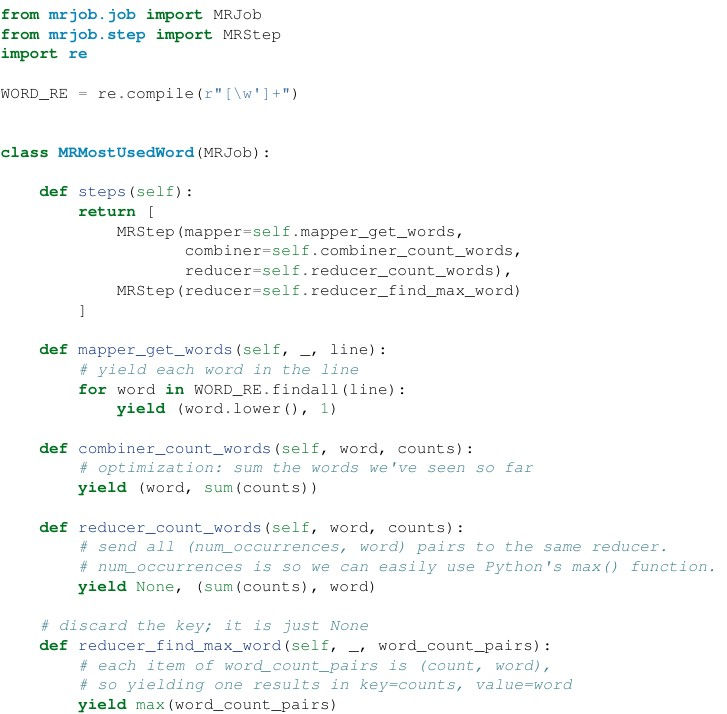Python Basic Practice Exercise For Beginners | How to Learn Python Programming | Realcode4you
- realcode4you
- Dec 31, 2023
- 3 min read
Type Casting in Python
x=34
y='November'type(x)output:
int
type(y)output:
str
x='34'
type(x)output:
str
Numeric Data and Operations
x=2
y=19
print(x+y)output:
21
x-y
print(x*y)output:
38
x/youtput:
0.10526315789473684
x^y , x**y
# ^ bitwise or
# do not use ^ for powers
# always use **output:
(17, 524288)
z=(x/y)**(x*y+3)
zoutput:
8.190910549494282e-41
x+2,y/10,x-y,x**youtput:
8.190910549494282e-41
a=x+2
b=y/10
c=x-y
d=x**y
a,b,c,doutput:
(4, 1.9, -17, 524288)
Boolean Data and Operations
x=True
y=False
type(x)output:
bool
x and y, x & youtput:
(False, False)
x or y , x | y output:
(True, True)
not x output:
False
not youtput:
True
a=34
a>34 output:
False
(a>34) and (a=='lalit')output:
False
checking equality : "=="
in-equality : "!="
greater than : ">"
less than : "<"
greater than or equal to : ">="
less than or equal to : "<="
String Data and Operations
x='Python'
y='Data'
type(x),type(y)output:
(str, str)
len(x),len(y)output:
(6, 4)
x+youtput:
'PythonData'
x*3output:
'PythonPythonPython'
z=x+' and '+y
zoutput:
'Python and Data'
type(z)output:
str
z.lower()output:
'python and data'
zoutput:
'Python and Data'
z.upper()output:
'PYTHON AND DATA'
z.capitalize()output:
'Python and data'
z.rjust(20)output:
' Python and Data'
z.ljust(20)output:
'Python and Data '
Indexing
x='PythonIndex'
xoutput:
'Python and data'
x[4]output:
'o'
x[-5]output:
'I'
x[2:7]output:
'thonI'
Lists
x=[20,92,43,83,"lalit","a","c",45]
x[3:7]output:
[83, 'lalit', 'a', 'c']
x[2:]output:
[43, 83, 'lalit', 'a', 'c', 45]
x[:4]output:
[20, 92, 43, 83]
xoutput:
[20, 92, 43, 83, 'lalit', 'a', 'c', 45]
x[3]output:
83
Flow Control In Python
x=12
if x>10: print('my value is larger than 10')else: difference=10-x print('x is smaller than 10 by '+str(difference))OUTPUT:
my value is larger than 10
x=[5,40,12,-10,0,32,4,3,6,72]for value in x: if value>10: print('my value is larger than 10') else: difference=10-value print('x is smaller than 10 by '+str(difference)) print('hello again') print('hello') print('hello there')OUTPUT:
x is smaller than 10 by 5
hello again
hello
my value is larger than 10
hello
my value is larger than 10
hello
x is smaller than 10 by 20
hello again
hello
x is smaller than 10 by 10
hello again
hello
my value is larger than 10
hello
x is smaller than 10 by 6
hello again
hello
x is smaller than 10 by 7
hello again
hello
x is smaller than 10 by 4
hello again
hello
my value is larger than 10
hello
hello therecities=['Mumbai','London','Bangalore','Pune','Hyderabad']for city in cities: num_chars=len(city) print('number of character in the name of city '+city+ ':'+ str(num_chars))OUTPUT:
number of character in the name of city Mumbai:6
number of character in the name of city London:6
number of character in the name of city Bangalore:9
number of character in the name of city Pune:4
number of character in the name of city Hyderabad:9x=10if x>6: print('greater than 6') if x>7: print('greater than 7') if x>8: print('greater than 8')OUTPUT:
greater than 6
greater than 7
greater than 8# break , continue , passx=[[1,2],['a','b'],[34,67]]for i,j in x: print(i,j)OUTPUT:
1 2
a b
34 67ctr=0for city in cities: print(ctr,':',len(city)) ctr+=1OUTPUT:
0 : 6
1 : 6
2 : 9
3 : 4
4 : 9Dictionaries
my_dict={'name':'lalit','city':'hyderabad','locality':'gachibowli','num_vehicles':2,3:78,4:[3,4,5,6]}type(my_dict)output:
dict
my_dict.keys()output:
dict_keys(['name', 'city', 'locality', 'num_vehicles', 3, 4])
my_dict.values()output:
dict_values(['lalit', 'hyderabad', 'gachibowli', 2, 78, [3, 4, 5, 6]])
my_dict['locality']output:
'gachibowli'
my_dict[4]output:
[3, 4, 5, 6]
my_dict['last_name']='sachan'
my_dictoutput:
{'name': 'lalit',
'city': 'hyderabad',
'locality': 'gachibowli',
'num_vehicles': 2,
3: 78,
4: [3, 4, 5, 6],
'last_name': 'sachan'}del my_dict['num_vehicles']
my_dictoutput:
{'name': 'lalit', 'city': 'hyderabad', 'locality': 'gachibowli', 3: 78, 4: [3, 4, 5, 6], 'last_name': 'sachan'}
for itr in my_dict:
print(itr)output:
name city locality 3 4 last_name
for itr in my_dict:
print(itr,my_dict[itr])output:
name lalit city hyderabad locality gachibowli 3 78 4 [3, 4, 5, 6] last_name sachan
my_dict.items()output:
dict_items([('name', 'lalit'), ('city', 'hyderabad'), ('locality', 'gachibowli'), (3, 78), (4, [3, 4, 5, 6]), ('last_name', 'sachan')])for key,value in my_dict.items():
print('key :', key , ' and value :',value)output:
key : name and value : lalit
key : city and value : hyderabad
key : locality and value : gachibowli
key : 3 and value : 78
key : 4 and value : [3, 4, 5, 6]
key : last_name and value : sachanSets
names={'lalit','spanadan','deepta','manoj'}
type(names)output:
set
'lalit' in namesoutput:
True
'harsh' not in namesoutput:
True
names.add('harsh')
namesoutput:
{'deepta', 'harsh', 'lalit', 'manoj', 'spanadan'}
names.add('harsh')output:
{'deepta', 'harsh', 'lalit', 'manoj', 'spanadan'}
names.remove('lalit')
namesoutput:
{'deepta', 'harsh', 'manoj', 'spanadan'}
for name in names:
print(name)output:
manoj spanadan harsh deepta
a={1,2,3,4,5,6}
b={4,5,6,7,8,9}c=a.union(b)
coutput:
{1, 2, 3, 4, 5, 6, 7, 8, 9}
a.intersection(b)output:
{4, 5, 6}
a.difference(b)output:
{1, 2, 3}b.difference(a)output:
{7, 8, 9}
a.symmetric_difference(b)output:
{1, 2, 3, 7, 8, 9}
Functions
x=12fib_series=[1,1]ctr=2while ctr<x: fib_series.append(fib_series[-1]+fib_series[-2]) ctr+=1fib_series
output:
[1, 1, 2, 3, 5, 8, 13, 21, 34, 55, 89, 144]
def fib_series_creator(num_elements): fib_series=[1,1] ctr=2 while ctr<num_elements: fib_series.append(fib_series[-1]+fib_series[-2]) ctr+=1 return(fib_series)
fib_series_creator(3)output:
[1, 1, 2]
def mysum(x,y,z):
return(2*x+3*y+4*z)
mysum(1,2,3)output:
20
mysum(2,4)output:
def mysum(x=1,y=10,z=100):
return(2*x+3*y+4*z)
mysum(1,2,3)output:
20
Args and kwargs
# * is an unpacking operator
# we can make use of it to create a function which can take variable number of argument
# many of these function can also be written where they are built for taking a list as an argument
def mymax_1(x):
m=-float('inf')
for elem in x:
if elem>m:
m=elem
return m
mymax_1([3,4,5,-10,55,2,1])
Output:
55def mymax_2(*x):
m=-float('inf')
for elem in x:
if elem>m:
m=elem
return m
mymax_2(3,4,5,-10,55,2,1)
output:
55mymax_2(3,4,5,-10,55,2,1,99,-100,54,67)
Output:
99
mymax_2(*[3,4,5,-10,55,2,1,99,-100,54,67])
output:
99
# a more useful purpose of unpacking operator is that # you can use unpacking operator to pass your argument as a list to a function which takes# fixed number of arguments . This you dont have to manually extract them into individual elements and # then pass to the function . here is an example def combine_name(first,last): name=first+' '+last return(name)names=[['lalit','sachan'],['rajkumar','rao'],['hardik','pandya']]for x in names :
print(combine_name(x[0],x[1]))
Output:
lalit sachan
rajkumar rao
hardik pandyaUnderstanding Global and Local Scoping
a=20
b=10
def exp1(a,b): a=7 b=3 global c c=100 print(a,b)a,bexp1(a,b)cclass experiment():
def init(self,a,b):
self.A=a
self.B=b
def do_something(self,x):
return(self.A*x+self.B*x)
Class
c1_name='lalit'c1_balance=100c1_last_wd=10c2_name='pravin'c2_balance=200c2_last_wd=50class customer(): def init(self,name,balance,last_wd): self.name=name self.balance=balance self.last_wd=last_wd def withdraw(self,amount): if(amount>self.balance): print('insufficient balance') else: self.balance-=amount self.last_wd=amount def deposit(self,amount): self.balance += amount return(self.balance)






































Comments